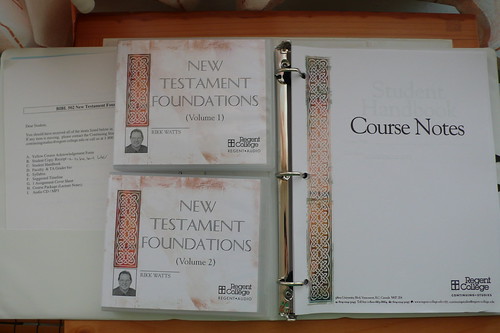Last Sunday, someone asked a question about whether one can still recognises his/her family in heaven, because in the Bible, Jesus said, there won't be any marital relationship. And it is very difficult to convince people to believe in Jesus when they won't know their family/friends in heaven anymore.
My question is: Is Christianity only about getting to heaven??
It's just sad that so many people (EVEN CHRISTIANS) think that way.
I'm reading
NT Wright's Surprised by Hope. I have read a lot of his stuff before, so most of the stuff in the first half of the book sounds familiar to me. =P
I agree with his view of heaven being on earth, rather than somewhere UP in the sky. I think most of the people who read his books agree with him on this. Most of the people don't like the political emphasis he had on this whole "heaven" business.
I haven't read through the application part yet, I had to read through the whole book because I got to introduce this "new" (I know it is not new, but most Christians don't know about it) heaven concept, and I think I have to be balanced and include the opposite views as well.
Someone on Amazon reviews said Wright did not mention much about sin, I don't know if he didn't mention it because he doesn't believe it is important in this whole business, or if it is because like what he said in the book, if a football commentator who doesn't talk about baseball, it doesn't mean he doesn't believe in baseball! Since so many people are talking about it, and so he didn't? I don't know.
I don't see why the removal of sin cannot co-exist with the new heaven and earth. Jesus' victory against sin is also part of it. hmm...
Got to figure out a way to present this whole complicated concept... and so many controversial points...
I've started listening to the lectures on New Testament Foundations I got from Regent College, Rikk Watts seemed to really agree on what NT Wright said about Israel stuff. hmm... I think I need to listen to some opposing views.




